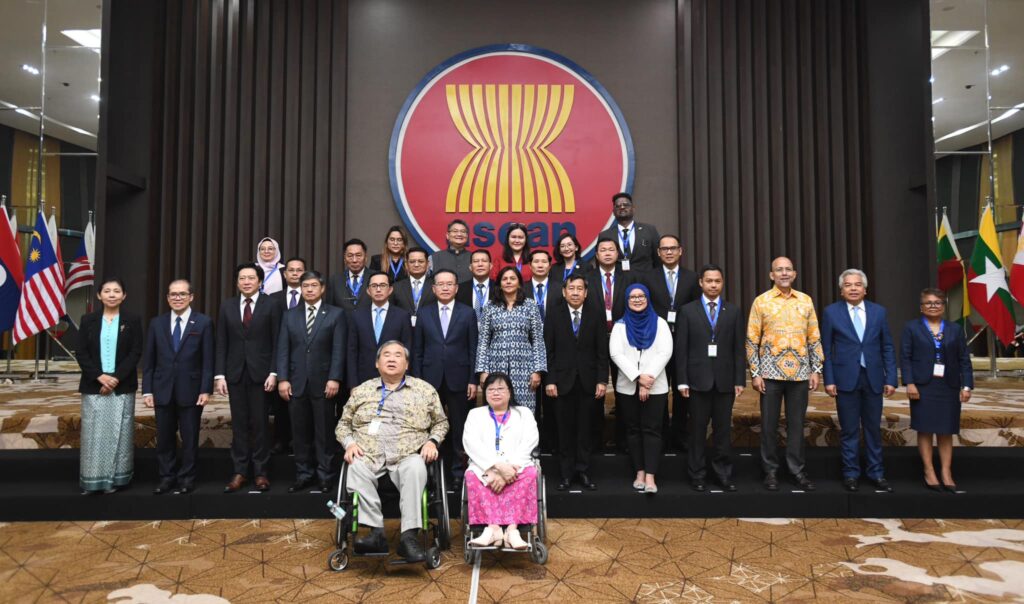
Jakarta, 9 May 2024 – The 16th Coordinating Conference for the ASEAN Political-Security Community (16th ASCCO) convened today in Jakarta, bringing together key ASEAN officials and strategic partners to strengthen regional political-security cooperation. A notable highlight of the conference was the inclusion of disability rights advocacy, as the ASEAN Disability Forum (ADF) presented a strong statement urging inclusive action within ASEAN’s political and security agenda.
Speaking on behalf of 62 million persons with disabilities in Southeast Asia—regardless of gender, religion, nationality, disabilities, sexual orientation, sexual identities, caste, ethnicity, social identities, or geographic areas—Mr. Lim Puay Tiak, ADF Chairperson, and Ms. Nguyen Hong Ha, ADF Steering Committee Member from Vietnam, addressed the forum with a firm call for meaningful participation and legal safeguards for persons with disabilities.
“Nothing about us is without us,” emphasized Lim, reiterating the principle of inclusive decision-making in ASEAN frameworks, particularly in the implementation and evaluation of the ASEAN Enabling Masterplan 2025: Mainstreaming the Rights of Persons with Disabilities, a regional commitment ADF has been engaged in since 2015.
In light of the upcoming ASEAN Political-Security Community Blueprint 2025, ADF outlined four key areas of action:
1. Guaranteeing Political and Civil Rights
Despite varying political and legal systems across ASEAN, ADF pointed to the widespread lack of accessibility and legal guarantees for persons with disabilities to fully enjoy civil and political rights—such as freedom of expression, assembly, association, the right to vote and be elected, and access to justice. ADF called for clear legal frameworks to uphold these rights across the region.
2. Disability-Inclusive Disaster Resilience
With climate change and natural disasters—floods, storms, landslides—disproportionately affecting persons with disabilities, ADF urged ASEAN to develop inclusive disaster risk reduction and emergency response policies. These policies must be designed and monitored with the active participation of persons with disabilities and their representative organizations, backed by appropriate budget allocations.
3. Regular and Institutionalized Engagement
ADF advocated for the establishment of a dedicated, sustainable mechanism or partnership to ensure regular involvement of Organizations of Persons with Disabilities (OPDs) in ASEAN’s political and security decision-making processes, aligning with the commitments outlined in the Enabling Masterplan.
4. Capacity-Building for Legal and Security Professionals
The Forum stressed the importance of systematic training and capacity-building on disability perspectives and human rights for professionals including judges, lawyers, prosecutors, correctional officers, social welfare officers, and relevant stakeholders to ensure rights-based implementation across all levels.
The message from ADF was warmly received, reinforcing ASEAN’s broader goal of becoming a rules-based, people-oriented, and people-centered community. As the conference drew to a close, ADF’s final message echoed with hope and solidarity:
“As part of the community, let’s make the ASEAN Enabling Masterplan realized!”
With strong voices like ADF’s at the table, ASEAN continues to move towards a vision of inclusive regional security—where no one is left behind.
